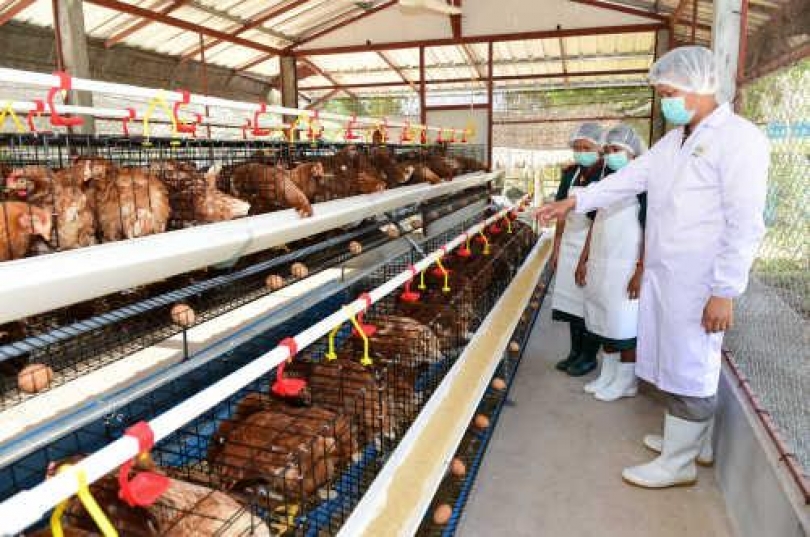Layer-hen project extended to tackle nutrition deficiency

Given further substantive findings on nutrition inequality, which can result in lower IQs and slower physical development among children and youth in rural areas, Charoen Pokphand Foods (CPF) is extending its layer-hen feeding project for student lunches.
While the primary goal is to provide safe and nutritious food that will improve children’s health and intelligence, the project also benefits local communities and gives the children themselves an invaluable life skill for the future.
Over the past 26 years, the food giant’s laying-hen feeding project has been delivered to 552 schools, benefiting over 1.2 million children, 5,000 teachers and 900 rural communities in remote areas and Border Patrol Police schools under the Office of the Basic Education Commission (Obec) and others nationwide, via a total budget of Bt82 million.
This year, the listed company is expanding the project to a further 50 schools, and recently delivered it to Anuban Prachaksilapakom School in Udon Thani province.
Adirek Sripratak, president and chief executive officer of CPF, said the company would support those schools with layer-hen housing and breeding equipment, a breeding laying-hen, feed meal and other farming factors for the first round of production.
Each school can then create a new generation of laying hens for its next production.
Moreover, CPF will also send staff to educate students and teachers in the right way to feed laying hens, and how to manage the production and marketing system.
Students will benefit from the nutritious consumption of fresh eggs in at least three meals a week.
"Not only is there a commitment to provide greater availability of nutritious school lunches, the project will encourage students to have more responsibility and a more voluntary mind.
"Moreover, the students will have direct farming experiences through feeding standards that they can call on to create their own farm businesses in the future," he explained.
In addition, people in communities surrounding schools participating in the scheme will also have access to a high-protein food source at a cheap price, and the sale of eggs will in turn become the working capital of the project in each school, he added.
The CEO pointed out that insufficient food and poor nutrition among children and youth in remote areas remained a critical problem, due to families not having the necessary means to provide them with a daily lunch.
Although the government has allocated a budget equivalent to Bt20 per head per day for lunches of primary-school students, many primary schools in remote areas have secondary-school students learning with them, meaning the budget in those cases is inadequate to cover all those requiring a school lunch.
Meanwhile, Jiraporn Senaphak, head of the academic affairs department for secondary section at Anuban Prachaksilapakom School, said the school had been selected by Obec to be a role model for a new learning system following the principles of the "Teach Less, Learn More" policy.
The school provides education from kindergarten to Mathayom 3 (Grade 9) to a total of 190 students.
Life skills education
In addition to eight basic core education curriculums – Thai language, mathematics, science, social study/religion/culture, health and physical education, arts, occupations and technology, and foreign language – the school provides an additional four education skills.
These consist of learner development; learning capabilities, thinking and self-development; characteristics and Thai values awareness; and life-skills education.
Students spend one hour to learn life skills after the completion of the afternoon session in their classrooms.
Until recently, the school has provided lessons in various learning skills for secondary-level students, including catfish-raising, mushroom-farming, cooking and garland-making.
Now, it has also incorporated layer-hen feeding into the life-skills education programme.
"Layer-raising will be an alternative life skill for students at Matthayom 1 (Grade 7), while there is catfish-feeding for Matthayom 2 and the cultivation of mushrooms for Matthayom 3. After learning the skill of raising layers, they can develop a laying-hen house at home," Jiraporn said.





